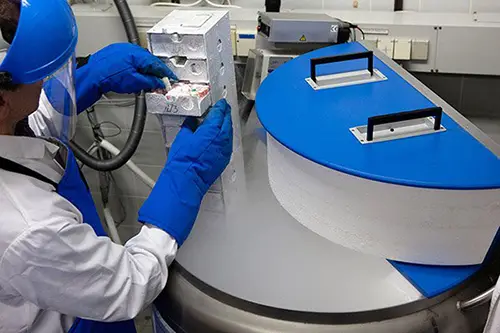
The Main Reason Academic Biobanks Should Provide Biospecimens to Industry
The primary reason academic biobanks should provide biospecimens to industry is to improve patient care. Industry plays a vital role in developing new therapies and diagnostics. However, it can only succeed if it has access to suitable human biosamples from academic or hospital biobanks and other non-commercial biobanks.
To support this view, several key sources emphasize the significance of this collaboration:
From the UK Medical Research Council
‘The development of new drug therapies, and diagnostic and screening tests, to the point where they can be made sufficiently widely available to benefit human health, is crucially dependent on commercial involvement. Therefore access by the commercial sector to samples of human material collected in the course of MRC-funded research should be facilitated, where this is consistent with our mission.’ Human Tissue and Biological Samples for use in Research – Medical Research Council (MRC) Ethics Series. Section 4.1
From the Research Council of Norway
‘The involvement of commercial companies seems crucial for realising the potential within biobanks to contribute to better diagnostics and improved drugs’. Research Council of Norway. 2008. Gode biobanker—Bedre helse. [Good biobanks—Better health]. Forskningsra ̊ det. Oslo.
From Comment on New England Journal of Medicine (NEJM) Article
‘Private sector discoveries account for 80 – 90% of pharmaceutical products … The discovery and development of new drugs, medicines, and vaccines to solve unmet medical needs is an extremely long and expensive process … Commercial companies have the funds, the expertise and the experience to take a potential product from bench to market.’ (https://www.policymed.com/2011/02/nejm-the-private-sector-discoveries-account-for-79-90-of-pharmaceutical-products.html)
From ‘Modern Biopharmaceuticals: Recent Success Stories’
‘Progress from basic research to advances in patient care, including ‘analysis of correlation and causation between genes and diseases leading to innovative pharmaceuticals, including aspects such as pharmacogenetics/ pharmacogenomics in drug development, genetic variation as a key to personalized medicine, and systems biology approaches to target identification and validation for drug discovery, is unthinkable without access to well-annotated patient samples’. Swifka, Janine, Khusru Asadullah and Arndt A. P. Schmitz. “Pharma Research Biobanking: Need, Socioethical Considerations, and Best Practice.” In Modern Biopharmaceuticals: Recent Success Stories, by Dr. Jörg Knäblein. Wiley VCH Verlag GmbH & Co. KGaA, 2013.
A Moral Responsibility of Academic Biobanks & Non-Commercial Biobanks
Academic biobanks and non-commercial biobanks are the primary gatekeepers for access to human biosamples. Because these biobanks receive public funding, they have a responsibility to support medical research for the public good. This research must occur not only in the public sector but also in the private sector. Consequently, academic or hospital biobanks have a moral obligation to provide biospecimens to the private sector, including pharmaceutical and biotechnology industries. Therefore, the extent to which these non-commercial biobanks support private sector research can serve as a measure of their societal value.
A Proposal To Encourage Best Practice In Academic Biobanks
In order to foster better collaboration between industry and academic biobanks, the level of support provided to the industry should be established as a key performance indicator (KPI) for biobanks. For example, academic or hospital biobanks could measure the number of industry projects supported per year or the number of samples provided to the private sector. By doing this, biobanks can enhance transparency and demonstrate their contribution to healthcare advancements.
Another Reason Academic or Hospital Biobanks Should Provide Biospecimens to Industry
In addition to improving patient care, there is another important reason academic biobanks should work with industry: financial sustainability. By partnering with the private sector, academic or hospital biobanks can generate essential funding that ensures their long-term viability. This topic will be explored in more detail in future discussions.
Other posts on this Biosample Hub blog include:
- Why Academic / Hospital Biobanks Should Provide Biosamples to Industry
- Ensuring Public Support For Biobank Cooperation With Industry
- The Main Actors Providing Biosamples To Industry
- Biosample Needs of Different Industry Players
- Acceptable Transactions in Biobanking
- What is Commodification?
- Why Biobank Access Policies Should Be Publicly Available
- Biospecimen Provenance: What Researchers Need To Know

